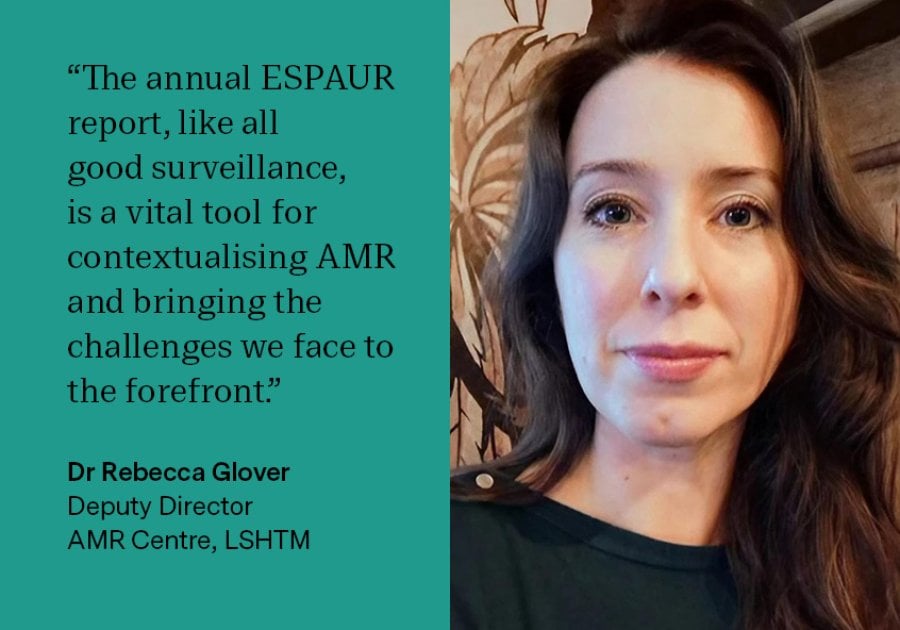
"...The annual ESPAUR report, like all good surveillance, is a vital tool for contextualising AMR and bringing the challenges we face to the forefront." Dr Rebecca Glover, Deputy Director, AMR Centre, LSHTM
The report highlights a 2.2% increase in antibiotic-resistant infections in 2022 compared to 2021, although levels remain 16% lower than before the pandemic in 2019. A particularly concerning finding is the widening gap in antimicrobial use (AMU) and resistant infections between the most and least deprived populations in England. The report also underscores the urgent need to reduce inappropriate antimicrobial use across all sectors to mitigate the growing threat of AMR.
Dr Rebecca Glover, Deputy Director of the AMR Centre at the London School of Hygiene & Tropical Medicine (LSHTM), said:
“I am delighted to see UKHSA’s continued commitment to comprehensive surveillance of antimicrobial resistance (AMR) in England. The annual ESPAUR report, like all good surveillance, is a vital tool for contextualising AMR and bringing the challenges we face to the forefront.
“The report notes a rise in resistant infections and a widening gap in both antimicrobial use (AMU) and resistant infections among the most and least deprived in England. This trend should be raising alarm bells for everyone in the UK’s AMR community. It is mission critical to expand analysis and research on AMR and inequalities to broaden our understanding of why this is happening.
“We must also be clear on what we already know. Though complex, AMR operates similarly to many other areas of public health. Income, immigration status, housing quality, access to health care — these are only some of the many social determinants of health that we know impact AMU and AMR.
“AMR remains a public health and health equity problem at its core; in addition to technical and clinical solutions, the most effective AMR policies will be ones that seek to minimise societal inequalities.”
For more information, visit the UKHSA’s full ESPAUR report: Antibiotic-resistant infections continue to rise.
If you enjoyed this article and would like to build a career in global health, we offer a range of MSc programmes covering health and data, infectious and tropical diseases, population health, and public health and policy.
Available on campus or online, including flexible study that works around your work and home life, be part of a global community at the UK's no.1 public health university.
